Video of the Week: Is AAC the Right Choice for Adults with Developmental Disabilities?
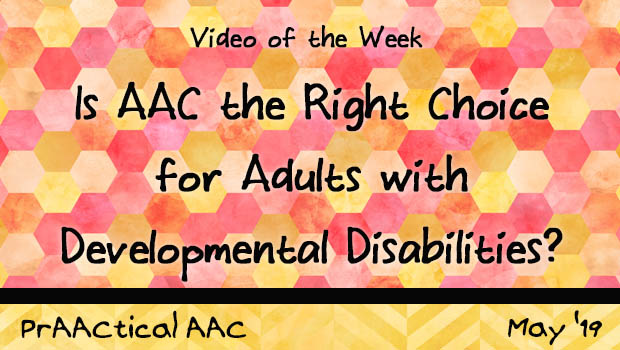
Many individuals with developmental disabilities and complex communication needs reach adulthood without a functional AAC system. In today’s featured video, SLP Paul Simeone discusses some of the issues around the decision to initiate AAC in adulthood.
We are grateful to Paul and the Arc of Massachusetts for addressing this important topic and raising awareness of the needs of such an under-served population.
Enjoy!
Direct link to video – https://www.youtube.com/watch?v=DQjFDfw3QL0&t=29s
Filed under: Video of the Week
Tagged With: adulthood, adults, developmental disabilities
This post was written by Carole Zangari
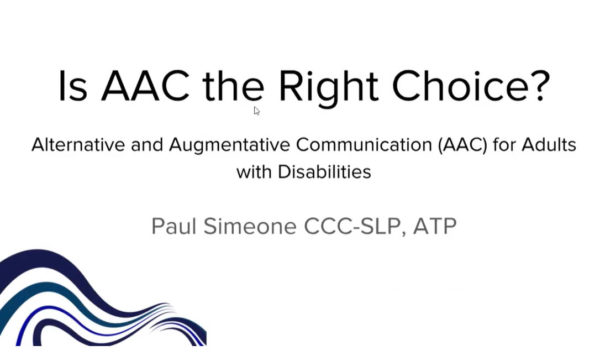

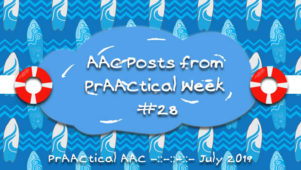
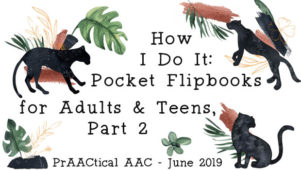

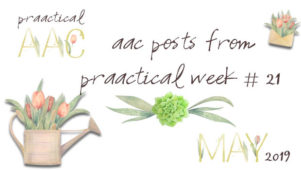
2 Comments
Thank you SO much for this resource! I work for the Arc in a day program with aging adults with I/DD and there are so few resources surrounding AAC and this population. I am so excited to watch this video.
Hi Carole
I’m sorry to say that this one frustrated me somewhat for a number of reasons.
Firstly I wish he would have explored the topic more broadly, rather than his apriori decision that AAC is the right choice. Sometimes giving someone a system is not going to be the right choice, efforts are needed to honour and support the nonsymbolic communication.
The social model of disability says that those around the person with a disability need to adapt too to learn and respect that person’s communication means. We established years ago that all people communicate, but the presenter talks as if it is only by using systems that they communicate.
First we must respect existing forms of communication- then build. For some, that build will be substantial to complex devices. For some the build will be minimal, but with people around them that honour the person’s expressive and comprehension needs, communication is possible.
I do agree that many adults can build their skills – I’ve seen it, I’ve aided it. But many languish with a challenge of their teams even viewing them as someone who wants to engage with others. And this is where they need to start – a pleasure or even acceptance of the company of others (both staff and the person with a disability).
As people age, they may lose skills. Touch, eye contact, and even sharing silence becomes more important means. We as communication specialist can support this changing need if we are open to true total communication.
We need to examine why system abandonment is so high – and if it is because of poor fit in the first place, then we need to truly examine a better fit, be that symbolic or nonsymbolic.
I applaud more interest in adults. I applaud the success that many have with symbolic systems and see the life changing joy.
But I mourn for those who are given systems that are poor fits, and are not given the chance to truly enhance their shared communication possibilities with the teams that support them every minute of the day.